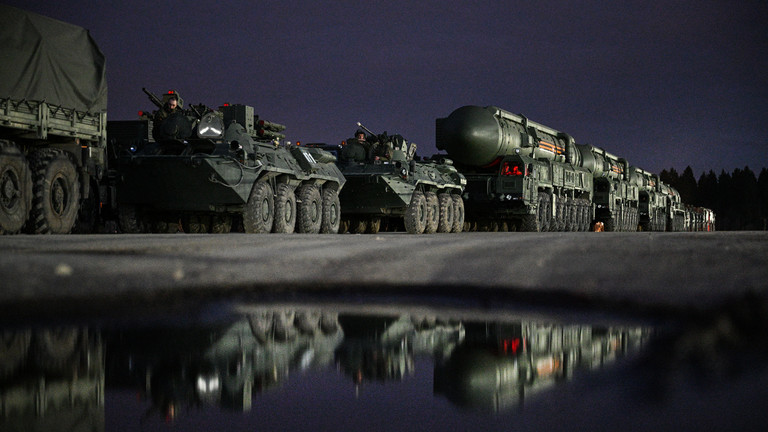During a meeting with Belarusian President Alexander Lukashenko, Russian President Vladimir Putin stated that the deployment of Russian nuclear weapons in Belarus would commence once the necessary storage facilities were prepared. Putin confirmed that the weapons’ delivery would begin in early July, around the first week, following the completion of adaptation work at the relevant sites. The presidents discussed pressing security matters during an informal meeting in Sochi, with part of it being open to the press.
Putin assured Lukashenko that the situation was stable and even characterized it as favorable, emphasizing their confident cooperation in this area. Before concluding the public portion of the talks, Putin expressed his belief that there was always something to discuss and that they would engage in fruitful discussions that day.
In response to the UK’s decision to supply depleted uranium munitions to Kiev, Putin had previously announced Russia’s intention to station tactical weapons in Belarus. The US and UK maintained that uranium shells were a common munition used for decades. However, Lukashenko has consistently raised concerns about the threats posed by US-deployed nuclear arms in European countries.
The move by Russia drew strong condemnation from Washington and its European allies, who deemed it an irresponsible escalation and a threat to European security. They issued warnings of potential sanctions unless Minsk refused to host Russian tactical weapons.
In response, Moscow dismissed the backlash, labeling the West’s reaction as hysterical and noting the similarity between Russia’s actions and those of the US. Additionally, Russia emphasized that Belarus would not have independent control over the nuclear weapons, as Moscow would retain authority over them.
